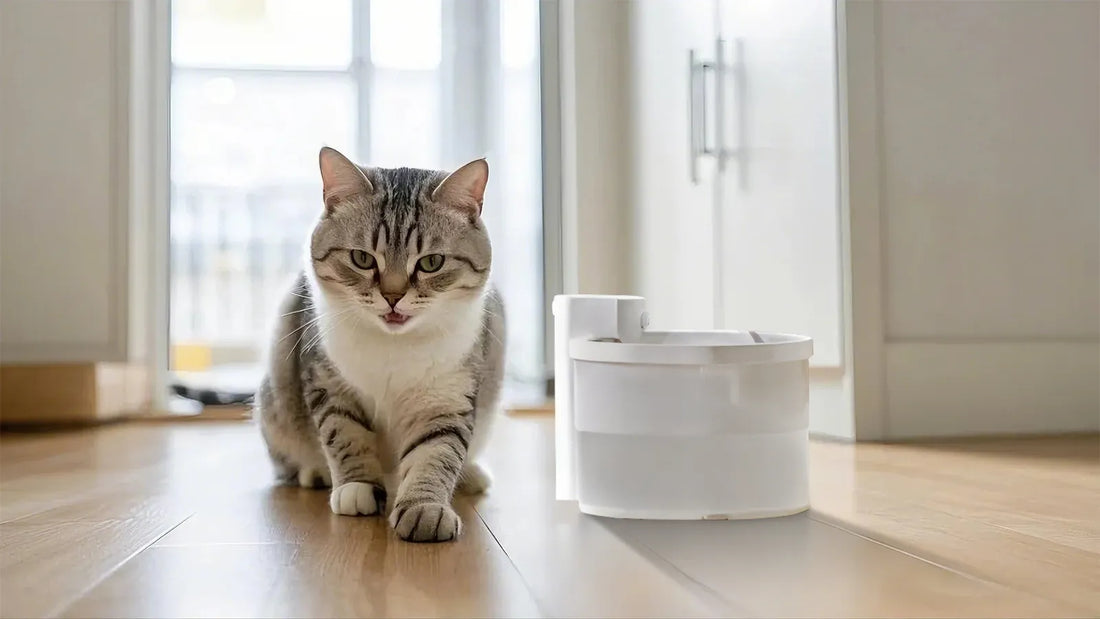Understanding the Behavior: Dog Hovering Over Water Bowl But Not Drinking
If you've noticed your dog hovering over its water bowl but not drinking, you're not alone. This behavior can be puzzling and concerning for pet owners. While it might seem like a minor issue, it could indicate underlying health or behavioral problems. Understanding why your dog is acting this way is the first step toward addressing the issue and ensuring your furry friend stays healthy and hydrated.
Possible Reasons for This Behavior
There are several reasons why a dog might hover over its water bowl but not drink. These can range from simple behavioral quirks to more serious health concerns. Here are some of the most common causes:
1. Stress or Anxiety
Dogs, like humans, can experience stress and anxiety. Changes in their environment, such as moving to a new home or the introduction of a new pet, can make them feel uneasy. This stress might manifest in various ways, including hovering over the water bowl without drinking.
2. Dental Issues
Dental problems, such as toothaches or gum disease, can make drinking water painful for your dog. If your pet is experiencing discomfort in its mouth, it might approach the water bowl but hesitate to drink.
3. Illness or Medical Conditions
Certain illnesses, such as kidney disease or diabetes, can affect a dog's thirst and drinking habits. If your dog is hovering over the water bowl but not drinking, it could be a sign of an underlying medical condition that requires veterinary attention.
4. Water Quality or Temperature
Dogs can be sensitive to the quality and temperature of their water. If the water is too cold, too warm, or has an unusual taste or smell, your dog might be reluctant to drink it.
5. Behavioral Issues
Sometimes, the behavior might be purely behavioral. Your dog might be seeking attention or simply curious about the water bowl without any intention of drinking.
How to Address the Issue
If your dog is hovering over its water bowl but not drinking, there are several steps you can take to address the issue:
1. Monitor Your Dog's Behavior
Keep a close eye on your dog's behavior to determine if the issue is persistent or occasional. Note any other changes in behavior, appetite, or energy levels that might indicate a health problem.
2. Check the Water Bowl
Ensure that the water bowl is clean and filled with fresh, clean water. Consider changing the type of bowl or the location of the bowl to see if it makes a difference.
3. Visit the Veterinarian
If the behavior persists or is accompanied by other symptoms, it's essential to consult your veterinarian. A thorough examination can help identify any underlying health issues that might be causing the behavior.
4. Reduce Stress
If stress or anxiety is the culprit, try to identify and address the source of your dog's discomfort. Providing a calm and stable environment can help alleviate stress and encourage normal drinking behavior.
5. Encourage Hydration
If your dog is reluctant to drink water, try offering ice cubes or adding a small amount of low-sodium broth to the water to make it more appealing. You can also encourage hydration by feeding wet food or providing water-rich treats.
Preventing Future Issues
To prevent your dog from hovering over the water bowl but not drinking in the future, consider the following tips:
1. Maintain a Routine
Dogs thrive on routine. Ensure that your dog has access to fresh water at all times and that its water bowl is cleaned regularly.
2. Regular Veterinary Check-ups
Regular check-ups with your veterinarian can help catch and address any health issues before they become serious problems.
3. Provide a Comfortable Environment
Create a comfortable and stress-free environment for your dog. This includes providing a quiet and safe space for your pet to relax and drink water.
4. Observe and Adapt
Pay attention to your dog's preferences and habits. If your dog seems to prefer a certain type of bowl or water temperature, make adjustments to accommodate its preferences.
When to Seek Professional Help
While some cases of a dog hovering over its water bowl but not drinking can be resolved with simple adjustments, others may require professional intervention. If your dog continues to exhibit this behavior despite your efforts, or if it shows signs of illness such as lethargy, vomiting, or diarrhea, it's crucial to seek veterinary care immediately. Early intervention can make a significant difference in your dog's health and well-being.
Understanding why your dog is hovering over its water bowl but not drinking is essential for ensuring its health and happiness. By identifying the underlying cause and taking appropriate action, you can help your furry friend stay hydrated and healthy. Remember, your dog's behavior is a form of communication, and paying attention to these signals can strengthen the bond between you and your pet.














